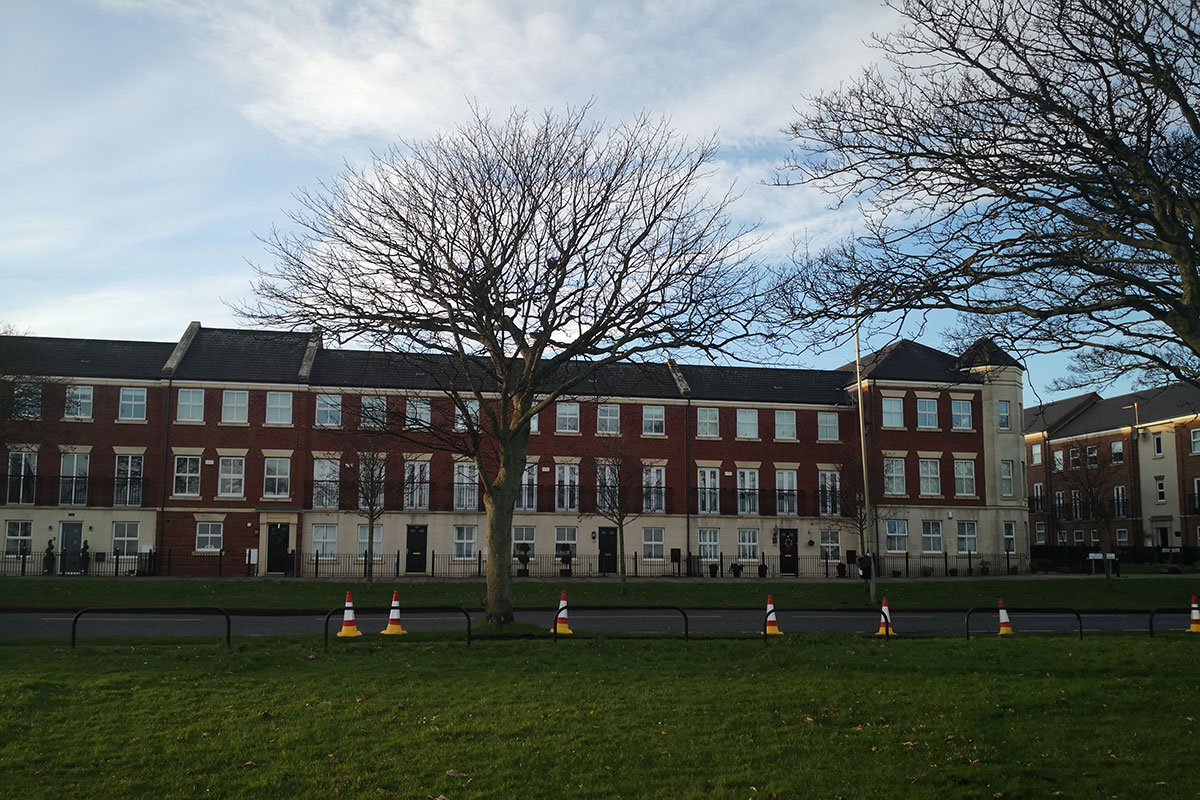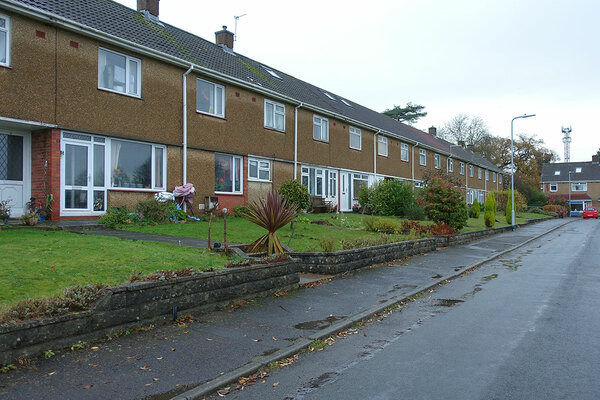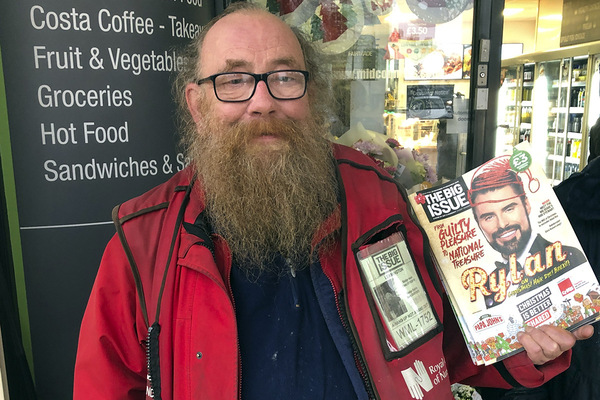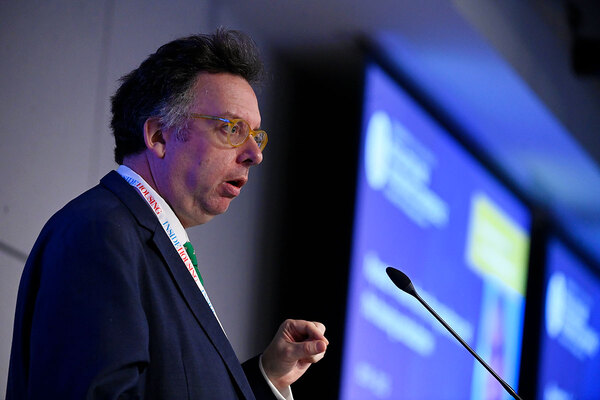General election 2019’s housing battlegrounds: South Shields
While the big topic in this election is Brexit, the housing crisis remains a top issue for voters in many areas. Inside Housing has travelled around the country to visit the marginal seats where it may influence the result. In the final part in our series of five, Jack Simpson visits South Shields
Look out from South Shields’ famous Minchella & Co seafront cafe and the picture is largely the same as it was 30 years ago. The remnants of the Tynemouth Priory can be seen far to your left. Further down the coast there is another pier with the South Shields Lighthouse at its tip. Directly in front is the mile-long Sandhaven Beach.
However, look backwards and the landscape has transformed dramatically.
Less than 30 years ago, on the spot where the Westoe Crown Village housing development now stands, was the Westoe Colliery. A fully functioning mine, which alongside the town’s shipyard employed thousands of South Shields natives – or ‘sand dancers’ as they are nicknamed.
The shipyards closed in the 1970s and the colliery, diminished after the miners’ strikes in the 1980s, was officially shut in 1993.
The closures resulted in decades of high unemployment, which continues today. The unemployment rate for South Tyneside is 7.1%, compared with the 4.1% national average.
Political allegiances also remain entrenched.
“I’ll never vote Conservatives after what Thatcher did in the 1980s,” Paula* tells Inside Housing as we sit in a cafe on Ocean Road, South Shields’ high street.
South Shields has been Labour-run since 1929. Current MP Emma Lewell-Buck won 61.5% of the vote in 2017.
Yet speaking to people in the town, some are now reconsidering backing Labour this time around, largely due to the party’s Brexit stance.
In the EU referendum, 62.05% of the town’s population voted Leave. One woman who has voted for Labour all her life is now considering supporting the Brexit Party. The Brexit Party candidate Glenn Thompson is a local independent councillor in the Westoe area of the town.
Paula, who voted leave, feels betrayed on Brexit and won’t vote again.
One of the parliamentary candidates looking to represent those disaffected Leave voters is Geoff Thompson, the multi-millionaire businessman and chair and owner of South Shields FC, the town’s local club.
Mr Thompson, who founded energy supplier Utilitywise, tells Inside Housing: “On Brexit, they are angry. Having voted to leave they feel that Labour has just played party politics.”
Mr Thompson says he will vote for a deal and to leave on 31 January.
However, Ms Lewell-Buck believes the backing of the Brexit Party is overstated.
She tells Inside Housing: “I’ve been knocking on doors and there aren’t that many people when you drill down to it that will vote for them.”
She believes that the people of South Shields, who have had to vote for an MP four times in the past six years, are fed up with the constant churn and actually just want to see improvement in their lives.
But while Brexit dominates political discussions, housing and welfare issues are important to voters, too.
With high levels of unemployment, welfare changes have had a significant impact on the town. This is clear at charity Hospitality & Hope, which runs a foodbank in the town.
The number of people who visit the foodbank has grown to 5,000 a year. The population in South Shields is only 84,000.
“Around two-thirds of referrals are benefits related, people switching over from the old Universal Credit system to the new one,” explains Paul Oliver, chief executive of the charity.
The full roll-out of Universal Credit started in May last year.
“The five-week delay is the main reason for the growth in demand, and often this wait doesn’t go smoothly and people can end up in a spiral of debt,” Mr Oliver says.
South Shields: constituency profile
Population: 83,796
Average house price: £129,950
MP: Emma Lewell-Buck (Labour)
Majority: 14,508
Figures: Office for National Statistics
Housing stock is also leading to welfare issues.
While there is a lack of social housing, the housing shortage is not as acute in South Shields as it is in other parts of the country. Having enough of the right types of homes is a challenge.
The majority of South Tyneside Council’s housing stock is two and three-bed properties, meaning young people are struggling to secure homes.
And those already living in these homes are being hit by the bedroom tax – in some cases losing a quarter of their benefits. But without enough places to downsize to, they are stuck.
This is compounding rent arrears for the council, which owns around 18,000 homes. It estimates that Universal Credit alone had led to £834,490 in rent arrears.
“We have spent all of our Discretionary Housing Payments,” explains Mark Walsh, lead member for housing and transport at South Tyneside Council. “The council also provides a lot of debt and finance support [to residents].”
And welfare issues, as well as funding cuts for supported housing, have led to the proliferation of houses of multiple occupancy (HMOs) and poor-quality housing.
Ms Lewell-Buck says: “When it comes to private landlords they have free reign in South Shields; they have not been checked, and properties aren’t up to standards. People are living in some appalling conditions, and there is no legislation in place to tackle them.”
Around 5,000 people visit the foodbank run by Hospitality & Hope
Drive around South Shields and you can see a number of large properties, usually former guesthouses, that have been bought and converted into HMOs.
“Over the past 10 years we have seen supported housing provision decline, and there is no doubt in my mind that the decline in Supporting People funding mirrors the opposite trajectory of rough sleeping and private registered HMOs,” says Steve McKinlay, chief executive of Tyne Housing, a local supported housing provider.
He says the combination of funding cuts and constant demand has created a vacuum in supported housing, which is being filled by private providers of HMOs. These landlords often do not provide adequate support to residents.
South Tyneside Council is close to completing a commission on HMOs, with recommendations due in the New Year to improve the situation.
But whether it is Brexit, austerity or investment in housing and transport, the sense of feeling “ignored” by Westminster repeatedly comes up.
Mr Walsh agrees. “Even when we talk about the Northern Powerhouse, it’s Yorkshire, it’s Manchester, it’s Leeds that get talked about,” he says.
And Mr McKinlay says that addressing the regional inequality should be on top of any new government’s priority list.
“There is some incredibly stark and sad evidence around regional inequalities, unemployment and related indicators, like health inequalities, drug-related deaths, alcohol-related deaths, male suicide,” he says. “Building more houses in South Shields isn’t going to solve anything until we take action to address regional inequality.”
*Name has been changed
The housing election: five seats where housing is influencing the race for Number 10
Warwick and Leamington
Gavriel Hollander visits a Labour-held seat where homelessness is an increasingly visible issue
Gower
Lucie Heath heads to South Wales to hear about the local crisis of unaffordable housing
Kensington
Peter Apps travels to a marginal seat in west London defined by the Grenfell Tower fire and housing inequality
South Shields
Jack Simpson heads to the North East to hear about a lack of investment in new housing and concern about Universal Credit
Wantage
Nathaniel Barker discovers dissatisfaction with new housebuilding in this Oxfordshire market town













